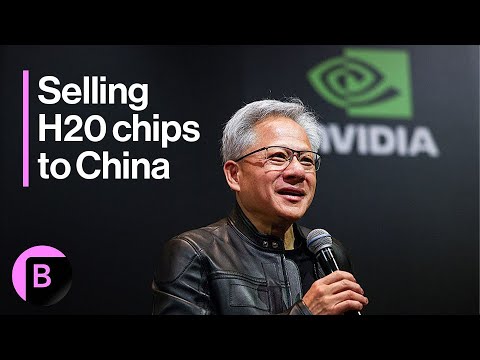Nvidia announced it will resume exports of its H20 chips to China after receiving tacit approval from the White House to apply for export licenses, marking a positive shift in U.S.-China trade relations. CEO Jensen Huang, currently in Beijing, highlighted the company’s role in lobbying for this change, which balances national security concerns with economic interests amid ongoing trade negotiations.
Nvidia has announced that it will resume exports of its H20 chips to China, following tacit approval from the White House to apply for export licenses. This announcement came directly from Nvidia rather than the U.S. government, highlighting the company’s proactive role in navigating the complex trade environment. CEO Jensen Huang, who is currently in Beijing and has appeared on Chinese state television, expects these license applications to be approved, allowing Nvidia to continue selling the H20 chips in China.
Jensen Huang has been a vocal critic of the U.S. export controls, arguing that they have been ineffective and have inadvertently given Chinese competitors like Huawei an advantage. Nvidia projected a significant financial impact due to these restrictions, estimating a potential loss of around $8 billion in sales for the current quarter. Despite working on a new chip based on the Blackwell architecture to comply with the Trump administration’s trade curbs, the resumption of H20 chip sales represents a major positive development for Nvidia.
This move is significant not only for Nvidia but also for broader U.S.-China relations. The ability to export compliant chips to China suggests a slight easing of trade tensions and a willingness on both sides to find common ground. Although the H20 and Blackwell chips are scaled back compared to Nvidia’s most advanced AI chips, their approval for export marks an important step in maintaining technological and commercial ties between the two countries.
The discussions behind this development appear to be part of broader trade negotiations and backroom bargaining. Jensen Huang’s meetings with Chinese officials, including the Commerce Minister and trade negotiator, indicate that Nvidia played a key role in lobbying the White House for this approval. The trade truce reaffirmed in London seems to involve a reciprocal arrangement: the U.S. wants China to expedite export licensing for rare earth minerals and magnets, while China seeks relaxation of export controls on advanced U.S. chips.
Overall, this development reflects a pragmatic approach by the Trump administration, recognizing that overly strict export controls may harm U.S. tech companies more than they help. By allowing Nvidia to resume chip exports, the administration appears to be balancing national security concerns with economic interests, aiming for a win-win outcome in the ongoing trade tensions between the U.S. and China.
